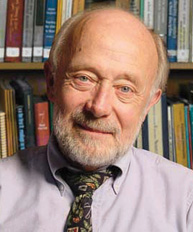http://www.religionnews.com/wp-content/uploads/2015/01/Marcus_Borg.jpeg
I have been reading up about Marcus J. Borg (1942-2015) lately, an American New Testament scholar, theologian and author. He is a well known progressive Christian and has shaped Christian thought in many ways.
Here are some great quotes from him that I have found inspiring:
“The Christian life is not about pleasing God the finger-shaker and judge. It is not about believing now or being good now for the sake of heaven later. It is about entering a relationship in the present that begins to change everything now. Spirituality is about this process: the opening of the heart to the God who is already here.”
“The point is not that Jesus was a good guy who accepted everybody, and thus we should do the same (though that would be good). Rather, his teachings and behavior reflect an alternative social vision. Jesus was not talking about how to be good and how to behave within the framework of a domination system. He was a critic of the domination system itself.”
“Christianity's goal is not escape from this world. It loves this world and seeks to change it for the better.”
“When we read Paul, we are reading somebody else’s mail—and unless we know the situation being addressed, his letters can be quite opaque...It is wise to remember that when we are reading letters never intended for us, any problems of understanding are ours and not theirs.”
“When tradition is thought to state the way things really are, it becomes the director and judge of our lives; we are, in effect, imprisoned by it. On the other hand, tradition can be understood as a pointer to that which is beyond tradition: the sacred. Then it functions not as a prison but as a lens.”
“Our images of God matter. Just as how we conceptualize God affects what we think the Christian life is about, so do our images of God.”
“The book of Proverbs makes the same point: Those who oppress the poor insult their Maker, but those who are kind to the needy honor him. (14.31)”
“Other prophets, other messiahs, came and went in Jesus’ day. Routinely, they died violently at the hands of the pagan enemy. Their movements either died with them, sometimes literally, or transformed themselves into a new movement around a new leader. Jesus’ movement did neither. Within days of his execution it found a new lease of life; within weeks it was announcing that he was indeed the messiah; within a year or two it was proclaiming him to pagans as their rightful Lord. How can a historian explain this astonishing transformation?”
From: http://www.goodreads.com/author/quotes/22721.Marcus_J_Borg




